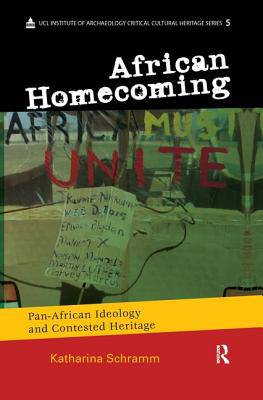
- Afhalen na 1 uur in een winkel met voorraad
- Gratis thuislevering in België vanaf € 30
- Ruim aanbod met 7 miljoen producten
- Afhalen na 1 uur in een winkel met voorraad
- Gratis thuislevering in België vanaf € 30
- Ruim aanbod met 7 miljoen producten
Zoeken
€ 209,45
+ 418 punten
Uitvoering
Omschrijving
African Americans and others in the African diaspora have increasingly "come home" to Africa to visit the sites at which their ancestors were enslaved and shipped. In this nuanced analysis of homecoming, Katharina Schramm analyzes how a shared rhetoric of the (Pan-)African family is produced among African hosts and Diasporan returnees and at the same time contested in practice. She examines the varying interpretations and appropriations of significant sites (e.g. the slave forts), events (e.g. Emancipation Day) and discourses (e.g. repatriation) in Ghana to highlight these dynamics. From this, she develops her notions of diaspora, home, homecoming, memory and identity that reflect the complexity and multiple reverberations of these cultural encounters beyond the sphere of roots tourism.
Specificaties
Betrokkenen
- Auteur(s):
- Uitgeverij:
Inhoud
- Aantal bladzijden:
- 319
- Taal:
- Engels
- Reeks:
Eigenschappen
- Productcode (EAN):
- 9781598745139
- Verschijningsdatum:
- 15/09/2010
- Uitvoering:
- Hardcover
- Formaat:
- Genaaid
- Afmetingen:
- 155 mm x 231 mm
- Gewicht:
- 544 g

Alleen bij Standaard Boekhandel
+ 418 punten op je klantenkaart van Standaard Boekhandel
Beoordelingen
We publiceren alleen reviews die voldoen aan de voorwaarden voor reviews. Bekijk onze voorwaarden voor reviews.











